Who wouldn’t want to get lost in the beauty of nature? Camping could be the perfect choice to enjoy these breathtaking moments and reflect on life.
Thinking about camping this vacation? If you’re new to it, you might be unsure of where to start or what to do. But there’s no need to worry. Today, we’re going to share some tips and guidance for beginners, based on our experience and that of seasoned campers.
I hope you find it incredibly useful. Let’s get started without further delay!
1. Planning.
You know? Any important task can only be done with planning, and camping is no exception. There are certain things you have to plan before heading to the campsite.
Questions like why you are going camping, where to camp, and what activities to do are crucial to finalize before setting off.
We’ve seen people head to the campsite without planning and regret it later. With proper planning, they would have had much more fun. So, planning is important.
One more thing you must do is inform your parents or friends for your safety and to keep your trace. It’s a must-do for any camping trip.
2. Choosing the Right Destination.

After planning, it’s crucial to carefully select the right destination or campsite. The entire success of your camping adventure depends on this decision. Choosing the wrong destination or site can not only diminish your enjoyment but also pose potential risks to your safety.
Therefore, it’s imperative to meticulously consider your options and choose the most suitable destination. Take into account factors such as terrain, amenities, accessibility, and safety considerations. Researching various camping locations and reading reviews can provide valuable insights to aid in your decision-making process.
Ultimately, by selecting the right destination with care and foresight, you can ensure a memorable and safe camping experience.
3. Research your campsite.
I hope you pick a suitable campsite for you.
Now, it’s time to delve into detailed information about the campsite. Before your departure, thorough research is necessary.
Explore the amenities, assess the accessibility, and consider the various options available for activities you plan to enjoy, such as fishing or swimming. This diligent preparation ensures a satisfying and enjoyable camping experience.
Doing thorough research is helpful because some campsites might not have everything you need. If that’s the case, you can always bring those items from home.
4. Assembling the Right Gear.
The next step in campsite research is picking out the right gear. Yes, you heard that correctly. For camping, we just need some basic stuff like a tent and safety gear.
From what we’ve seen, some folks feel overwhelmed because of all the fancy gear out there and its high prices. But here’s the deal for our Camping Clan audience: you don’t need fancy gear to start. Basic gear will do, depending on your campsite. Now, let’s get our gear together!
Extra Tips: I’ve seen people struggle to set up a tent properly. If you spend too much time setting up your tent at the campsite, you’ll miss out on exploring the area, and nobody wants that. So, our top recommendation is to practice pitching your tent first. And don’t forget about other important items like food, basic safety gear, and a fire starter.
5. Weather Preparedness.
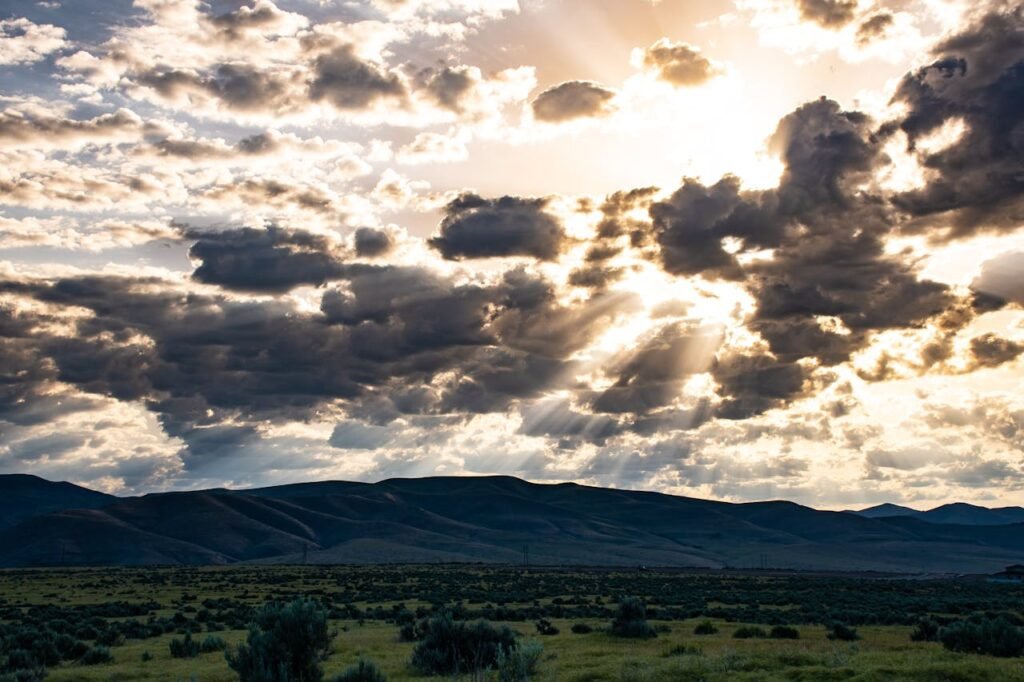
We can’t control the weather, so we need to be ready for whatever it throws at us, especially when we’re outdoors.
Before heading out on a camping trip, it’s crucial to check the weather forecast for your campsite and prepare accordingly. Consider these essential factors:
Sometimes, even when the forecast looks good, the weather can change unexpectedly. This is especially true in mountainous areas, where weather patterns can shift suddenly. Mountains also tend to get more rain than other places, so it’s important to be prepared for that. Trying to fight against nature’s whims is pointless. Instead of giving up on camping when the weather turns sour, embrace the challenge.
Remember, the whole point of camping is to connect with nature, and dealing with bad weather can make the experience more memorable and exciting. So, if it starts to rain, don’t let it ruin your fun—embrace it as part of the adventure!
6. Meal planning
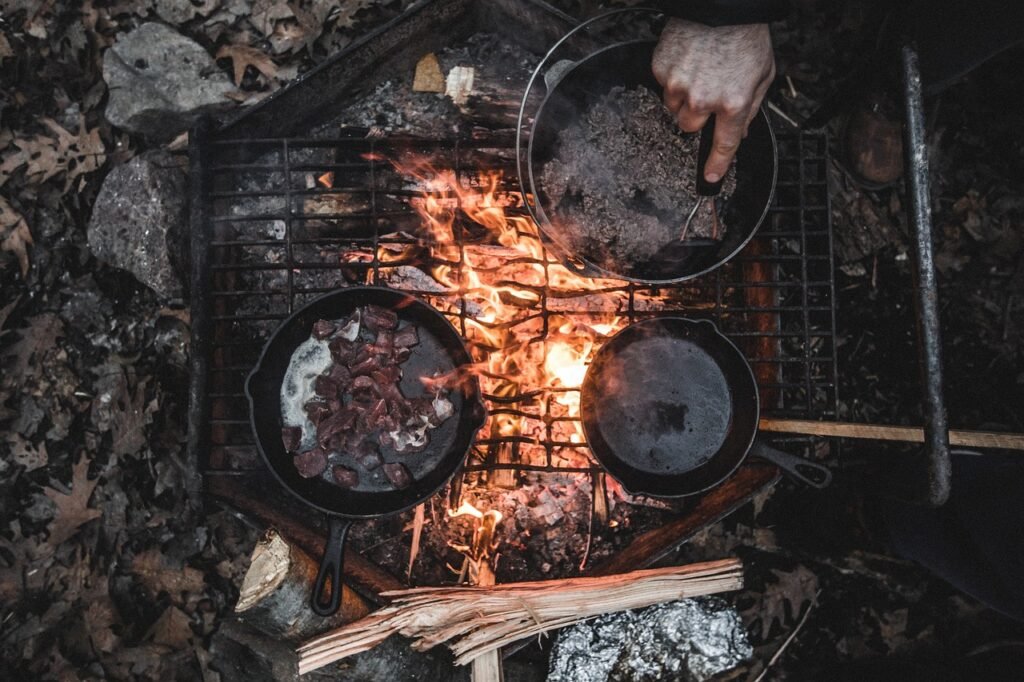
Meal planning is crucial for a successful camping trip. You don’t believe me; we have seen many newbies who can’t do proper meal planning. It’s common to find discrepancies where one meal excels while another falls short.
To avoid such situations, it’s important to plan meals properly. Decide in advance what foods will be eaten for breakfast, lunch, and dinner. Protein should be a priority, with at least one or two protein-rich meals included in the menu. Choose foods that are easy to pack in a bag for convenience.
In addition to food, consider other essentials like gas stoves, freezers, or coolers for meal preparation. If these items aren’t available at the campsite or you prefer not to invest in them initially, improvisation is key. Using dry wood for cooking instead of a gas stove is an option. Select foods that don’t require refrigeration to eliminate the need for a freezer.
Fun fact: Based on our experience, many campsites offer a variety of foods, such as blueberries, fish, and assorted fruits. These options can supplement your supplies effectively.
7. Fire safety
Fire serves many purposes while camping. Ensuring fire safety is crucial to preventing accidents. It’s essential to have a good understanding of fire safety. We’ve noticed that such accidents are common, especially in the summer. Fire safety should be a priority year-round, but extra caution is needed in hot weather.
Now, let’s discuss how to ensure fire safety. Fire is necessary for campfires and cooking, so choose a spot away from dry grass or tree branches to light it. Avoid lighting fires near tents, and never use gasoline or similar substances to ignite them. It’s wise to extinguish the fire before sleeping, as airborne embers can cause fires at different times. Therefore, it’s crucial to prioritize fire safety to prevent serious accidents.
8. Wildlife Awareness
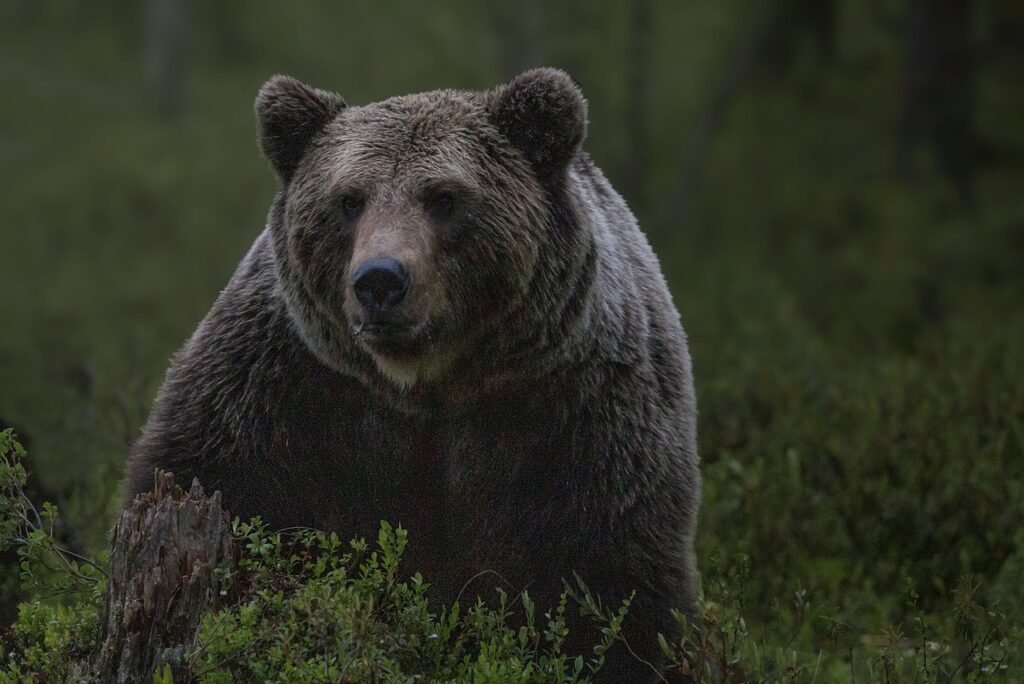
As we’re heading out for outdoor camping, it’s crucial to be aware of wildlife. This is particularly vital for our safety.
While many animals are harmless, many can be dangerous. Nevertheless, it’s essential to treat all wildlife with respect and keep a safe distance from them.
Wild animals might be attracted to our food and could pose a threat. Therefore, it’s important to store our food securely to prevent them from being drawn to it by its smell. In many areas, snakes are common, and some of them are venomous.
The use of carbolic acid to deter snake attacks is not uncommon. You may use it if you wish, but caution is necessary. If you lack experience with applying acid, it’s best to avoid doing so. Numerous animals can potentially cause harm, so it’s important to remain vigilant at all times.
9. Emergency and First Aid
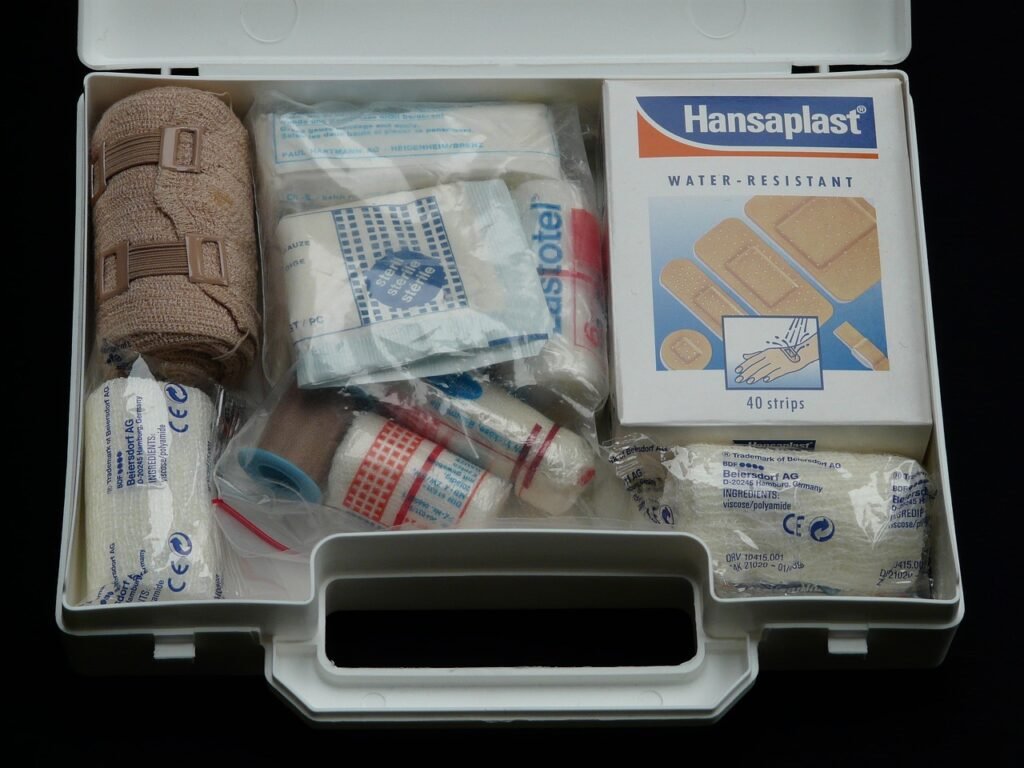
It’s never advisable to go camping without a first-aid kit. It’s extremely important and necessary. During camping trips, we may encounter situations where first aid is needed, such as cuts or minor injuries. Having a first-aid kit readily available is essential in such instances.
Additionally, a well-stocked first aid kit should include items such as bandages, antiseptic wipes, pain relievers, and tweezers to handle various medical needs that may arise during outdoor adventures. Familiarize yourself with how to handle emergencies should they arise.
Extra safety tips:
An important point to note is that those of you with allergies should be extra cautious. The forest contains many substances that can worsen your allergies. I hope you’ll consider this beforehand.
While there are numerous beautiful insects in the forest that may catch your eye, be cautious! Not all beautiful insects are harmless. Many are poisonous and can harm you if touched. Similarly, there are many poisonous plants to be aware of and avoid during your time in the forest.
10. Setting Up Camp
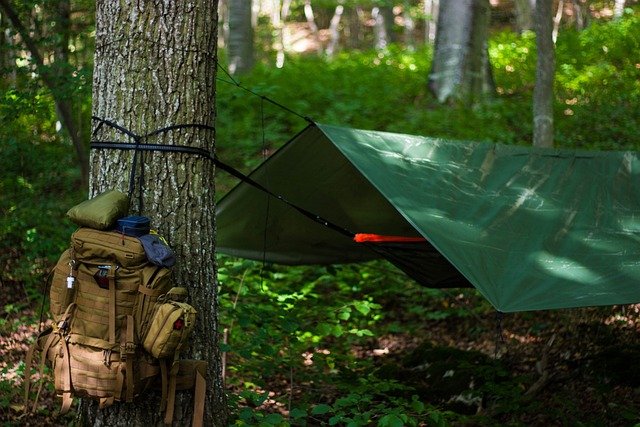
If you have completed all the previous tasks correctly, you are now ready to head to the campsite. You may have already arrived at the campsite by now.
It’s time to set up the tent. If you’ve practiced pitching the tent, as mentioned earlier, you’ll be able to do it properly and easily.
However, from our experience, we’ve noticed that many people pitch their tents in the wrong places. You certainly don’t want to set up your tent in the wrong place, right? Never fear! I’ve shared some tips on this matter, and I hope they’ll be helpful for you.
- 1. Choose high ground and set up the tent away from bushes. Never pitch your tent under a dead tree, as it may fall on your tent unexpectedly. It’s vital to make sure you focus on this.
- 2. Always select a location near a water source, such as a river, canal, or small pond, if possible. Having easy access to water offers various advantages.
These are the two fundamental rules to follow, but there are also additional guidelines to keep in mind.
11. Maintain Personal Hygiene

Good personal hygiene is essential for staying healthy and comfortable during camping trips. Pack essentials like biodegradable soap, toothpaste, and hand sanitizer to maintain cleanliness.
Regularly wash your hands before and after meals, after using the restroom, and when handling food to prevent the spread of germs.
12. Leave No Trace Principles
1. Plan and prepare: Research the area you’re visiting, understand the regulations, and pack accordingly.
2. Dispose of waste properly: Pack out all trash and waste, including biodegradable items like food scraps.
3. Leave what you find: Resist the temptation to take souvenirs from nature and leave natural objects and cultural artifacts as you find them.
4. Minimize campfire impacts: Use existing fire rings when possible, keep fires small, and fully extinguish them before leaving.
5. Respect wildlife: observe animals from a distance, avoid feeding them, and store food securely to prevent wildlife encounters.
6. Be considerate of other visitors: respect quiet hours, yield to others on trails, and minimize noise to preserve the natural experience for everyone.
In conclusion, embarking on a camping adventure requires thorough planning and preparation to ensure a safe and enjoyable experience. By following the outlined steps, including planning, selecting the right destination, researching the campsite, assembling the necessary gear, preparing for the weather, meal planning, and maintaining personal hygiene, campers can mitigate risks and maximize enjoyment.
Additionally, adhering to the Leave No Trace Principles is essential for preserving the natural environment and respecting wildlife. Overall, by incorporating these tips and safety measures, campers can embark on memorable outdoor adventures while minimizing their impact on nature.
